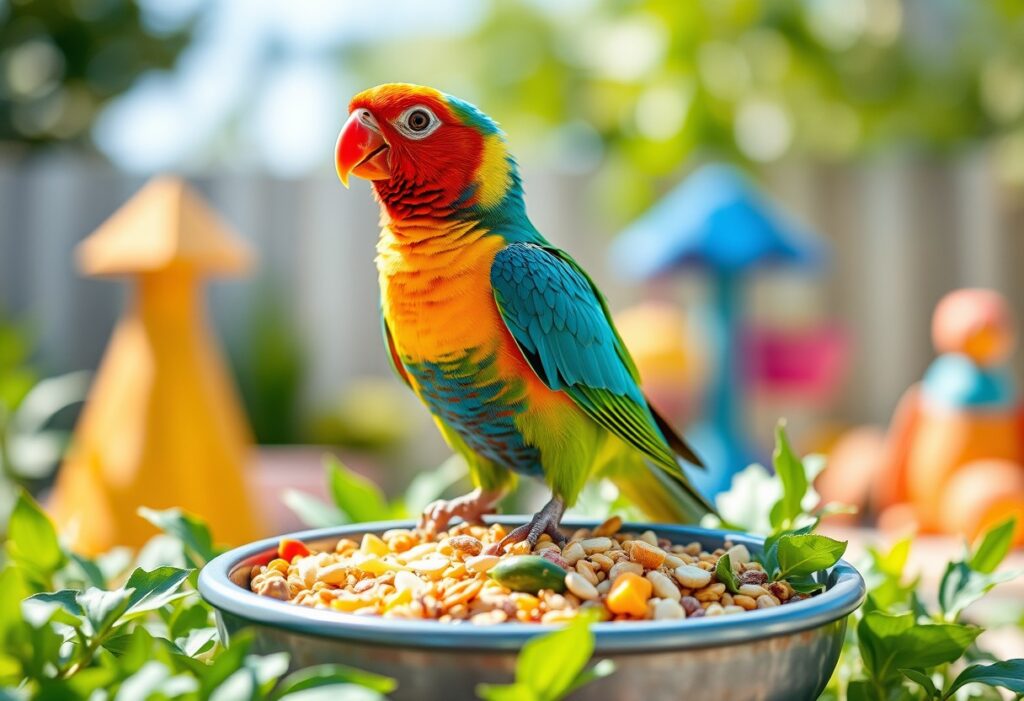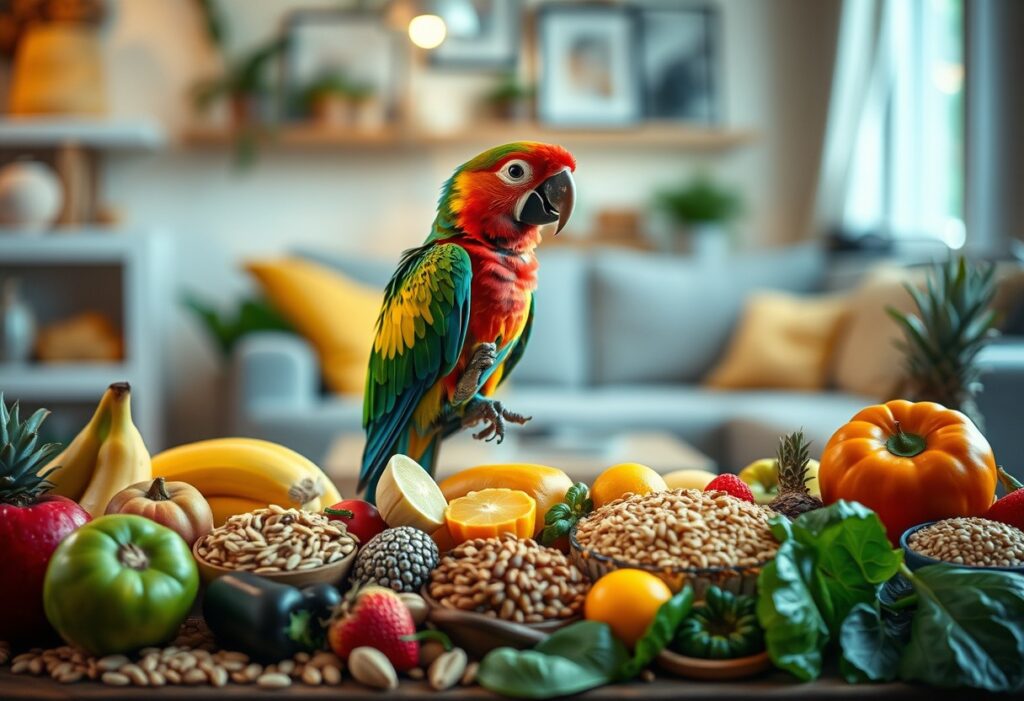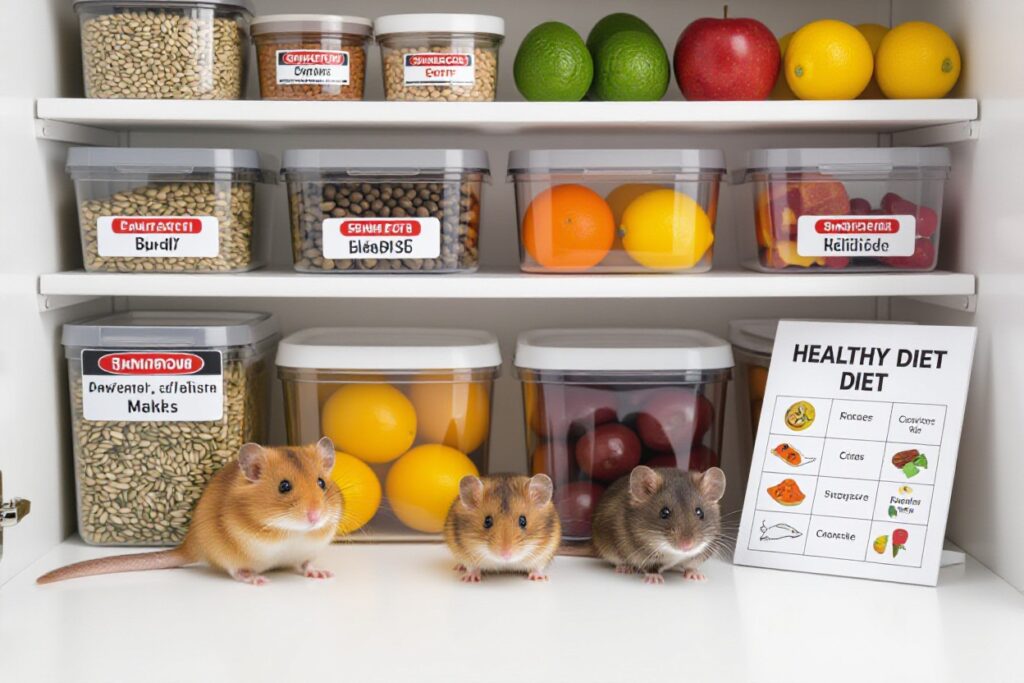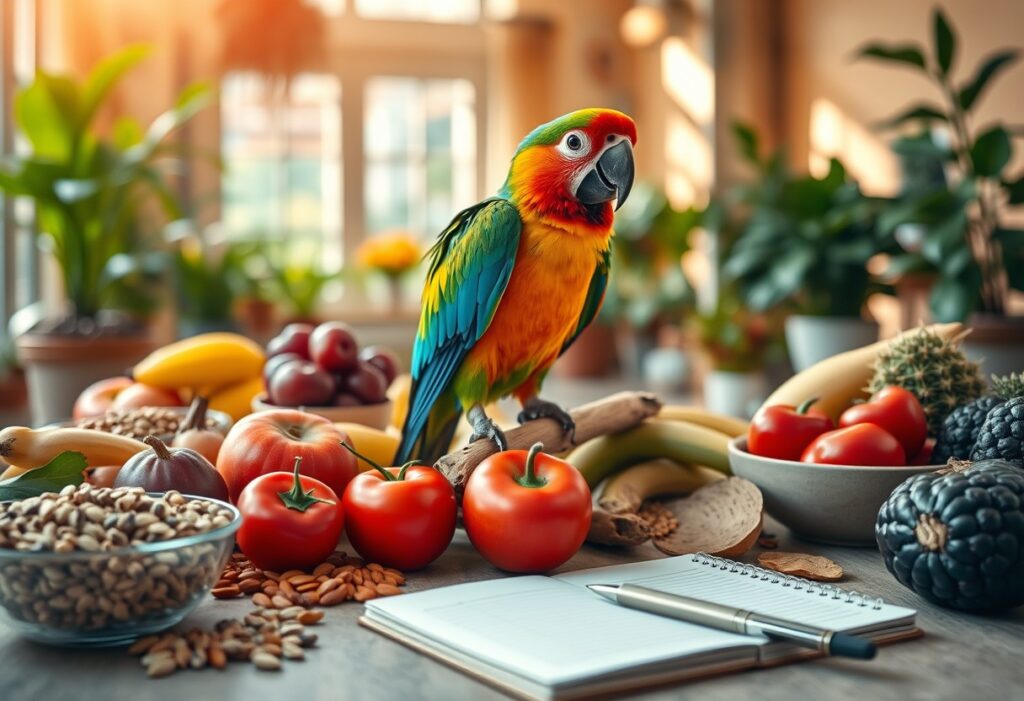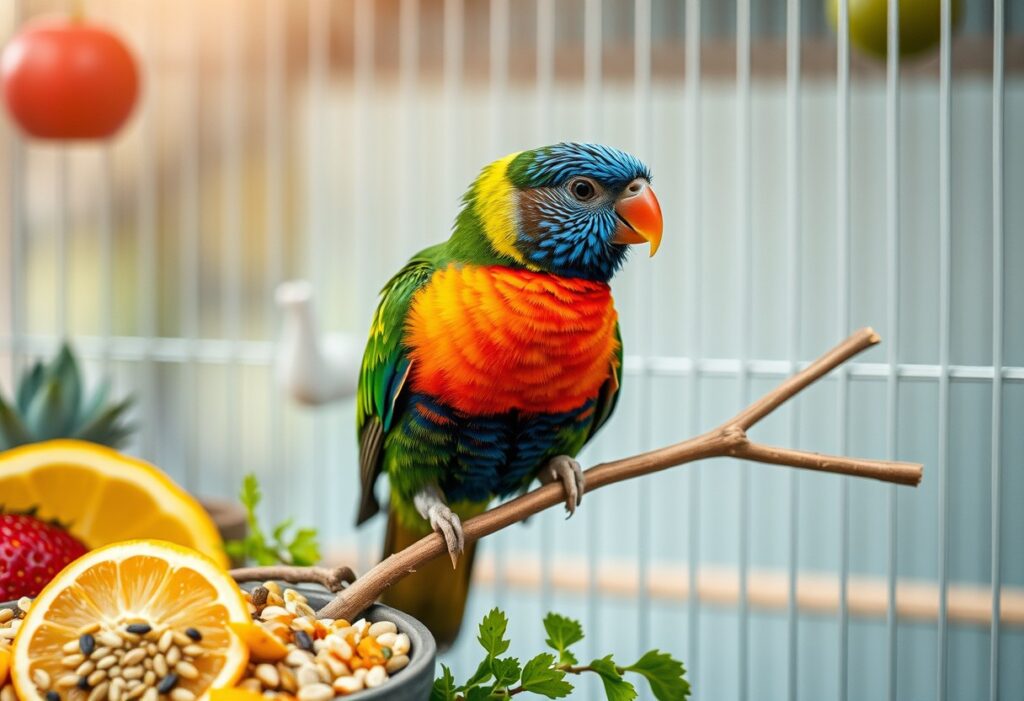Most bird owners may underestimate the significance of a balanced diet in ensuring their feathered friends thrive. A proper diet is important not only for optimal health but also for preventing potential nutritional deficiencies that could lead to serious health issues. By providing your bird with a variety of fruits, vegetables, seeds, and pellets, you are promoting strong bones, a vibrant plumage, and improved overall well-being. Understanding the specific dietary needs of your bird species will empower you to make informed choices that support a longer, healthier life.
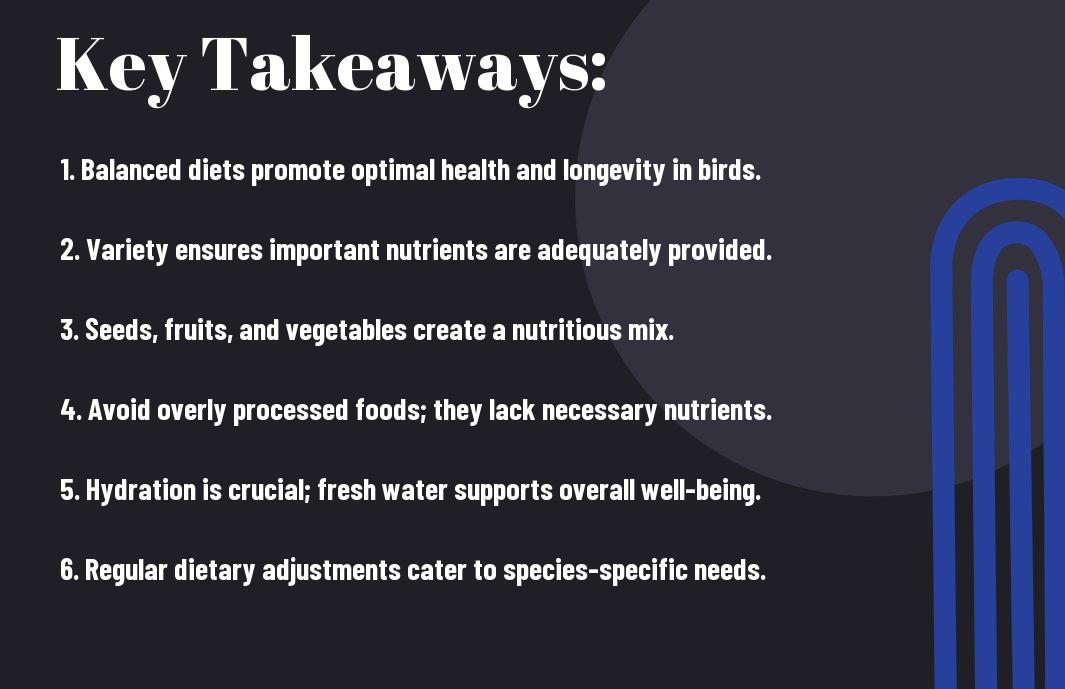
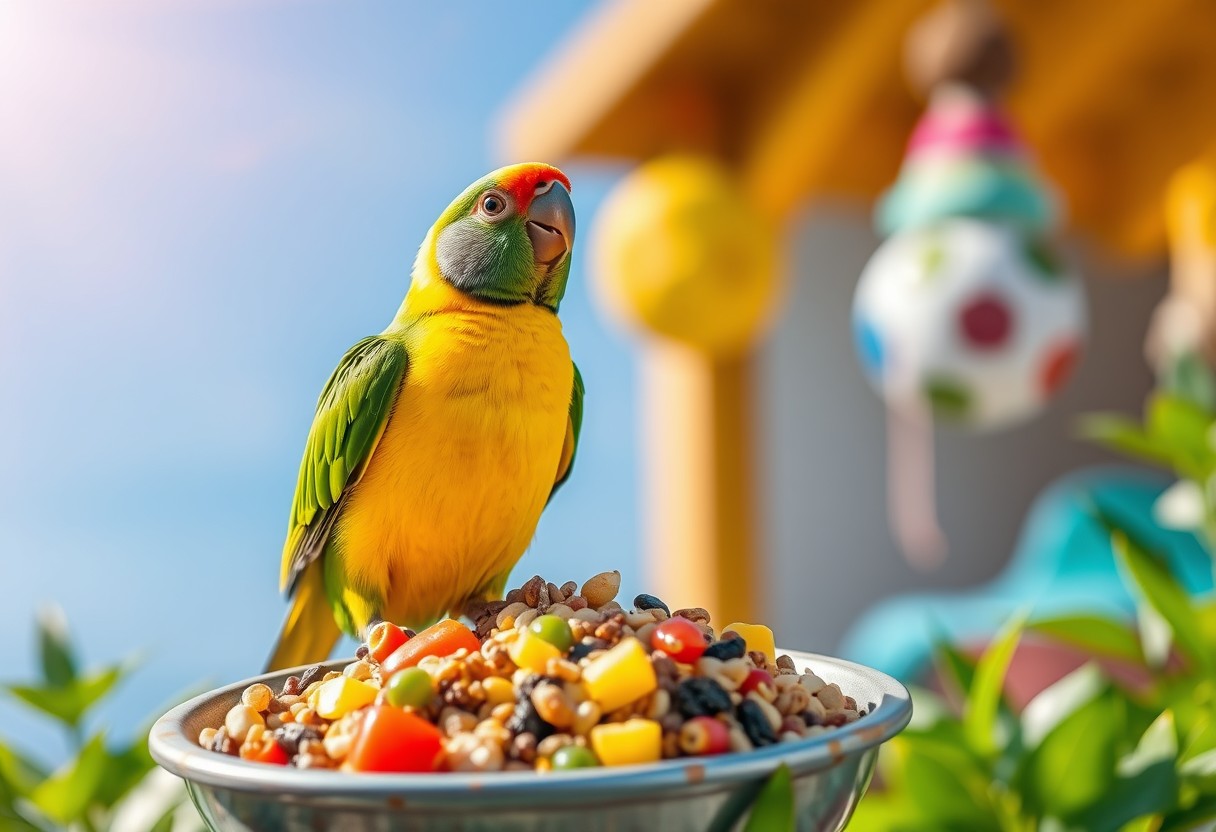
Understanding Bird Nutrition
The balance of nutrition is crucial for the health and well-being of your feathered friends. Just like humans, birds require a variety of nutrients to thrive, including those that support their energy levels, reproduction, immune function, and overall vitality. Understanding the basics of bird nutrition allows you to provide a balanced diet that meets the diverse needs of your avian companions, ultimately leading to a happier and healthier life.
Key Nutritional Components
To ensure your birds are receiving proper nutrition, it is vital to provide a mixture of carbohydrates, proteins, fats, vitamins, and minerals in their diets. Carbohydrates provide the energy birds need for daily activities, while proteins are imperative for tissue repair and growth. Fats, although less prominent, also play a critical role in energy storage and absorption of certain vitamins. Each component plays a unique role, and an imbalance can lead to nutritional deficiencies or health issues.
To achieve a well-rounded diet, consider including a variety of seeds, fruits, vegetables, and commercial bird pellets that cater to your bird’s specific species. These foods can help achieve a relative balance and may help ensure that your birds enjoy all imperative nutrients while generally improving their well-being.
The Importance of Macronutrients
The significance of macronutrients in bird nutrition cannot be overstated. Macronutrients—carbohydrates, proteins, and fats—serve as the foundation for a healthy diet. Carbohydrates are primarily sourced from seeds and grains, sustaining your bird’s energy requirements for flying, foraging, and socializing. Meanwhile, proteins from sources like legumes, grains, and specific seeds, contribute to muscle development and repair. Fats, often overlooked, are crucial for maintaining energy levels, particularly in species that require higher energy outputs, especially during breeding seasons or molting.
Understanding the different types of macronutrients your bird requires allows you to cater their diet according to their specific lifestyle needs, thus preventing issues related to overconsumption or deficiencies. This knowledge empowers you to provide the best care for your birds, promoting their overall health and longevity.
The Role of Micronutrients
Any healthy avian diet must also incorporate micronutrients, which include imperative vitamins and minerals necessary for various bodily functions. These micronutrients assist in processes such as bone development, immune responses, and metabolism. While small in quantity, their impact on your bird’s health should not be underestimated. Insufficient intake of vitamins such as A, D, and E, or minerals such as calcium and phosphorus can lead to serious health complications.
Birds obtain micronutrients from a range of natural foods, including fresh fruits and vegetables, as well as specially formulated bird supplements. Ensuring that your birds have access to a diverse diet will not only help them meet their micronutrient requirements but also encourage natural foraging behaviors, enhancing their psychological well-being.
Bird nutrition is a complex yet fascinating subject that requires careful attention to detail. By understanding the various nutritional components, you can create a diet that is not only balanced but also enriching for your birds, safeguarding their health and happiness.
The Impact of a Balanced Diet
Any discussion about bird nutrition would be incomplete without considering the significant impact that a balanced diet has on various aspects of their well-being. A well-rounded nutritional intake not only enhances physical health but also influences behavioral patterns and reproductive success. When you ensure that your birds receive the right combination of nutrients, you pave the way for a healthier and more vibrant life for them, which can ultimately lead to a more enjoyable companionship with your feathered friends.
Physiological Benefits
For birds, a balanced diet is important for maintaining proper physiological functions. Just like humans, birds require a variety of nutrients, including proteins, fats, carbohydrates, vitamins, and minerals, to support their metabolism, energy levels, and immune system. Insufficient or imbalanced nutrition can lead to various health issues such as malnutrition, metabolic disorders, and weakened immunity, which can compromise their overall health.
For instance, diets lacking in specific vitamins can lead to problems like feather plucking and poor plumage quality. By providing your birds with a diet rich in important nutrients, you not only help them to thrive physically, but you also enable them to exhibit their natural behaviors and instincts more freely.
Behavioral Implications
On the other hand, the influence of a balanced diet extends beyond just physical health; it significantly affects your birds’ behavior as well. A proper intake of nutrients can lead to improved mood, reduced stress, and less aggression in birds, creating a more harmonious living environment. When you provide a variety of foods, you also stimulate their natural foraging instincts, keeping their minds engaged and active.
The correlation between nutrition and behavior is particularly noticeable in species that require a high level of mental engagement. A deficiency in certain nutrients can result in signs of anxiety, lethargy, or even irrational behaviors. By ensuring your birds receive a comprehensive diet, you’re promoting not only their physical health but also their mental well-being, which are both critical to ensuring a balanced home and a positive interaction with their human caretakers.
Reproductive Success
Reproductive success is another area profoundly influenced by the nutritional choices you make for your birds. A balanced diet rich in important vitamins and minerals plays a pivotal role in the reproductive health of your avian companions. Adequate nutrition can lead to higher egg production rates, improved fertility, and healthier chicks. This is particularly true for breeding birds, as their bodies require additional nutrients during this critical time.
Reproductive challenges stemming from inadequate nutrition can manifest as poor egg quality or an increase in abandoned nests. In contrast, ensuring that your birds have access to the right nutrients will greatly enhance their reproductive outcomes. Maintaining a well-rounded diet supports not just the parents, but also the growth and development of the offspring.
Understanding the implications of diet on your birds’ reproductive success is vital for any bird owner interested in breeding. By focusing on a nutritionally balanced diet, you can mitigate risks associated with breeding failures and ensure that new life is as healthy as possible, guaranteeing a brighter future for both your birds and their young.
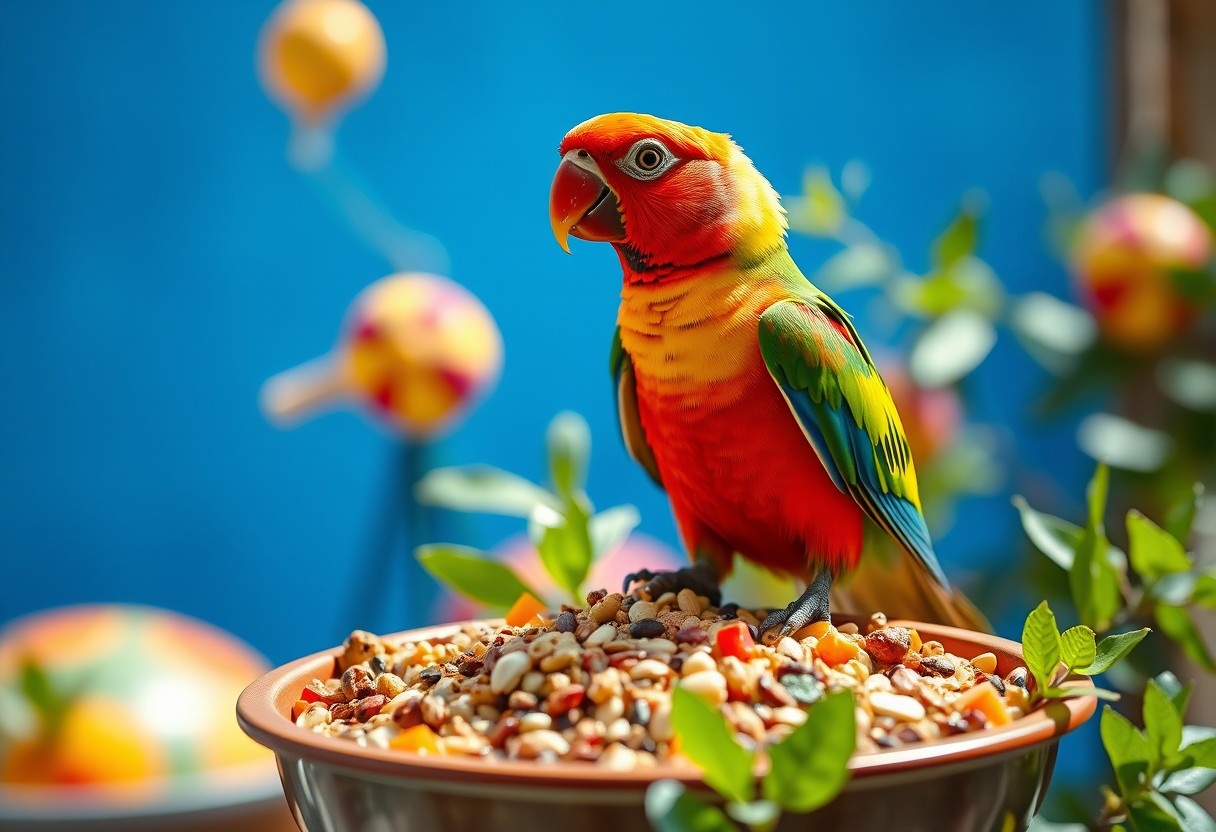
Common Nutritional Deficiencies
Your feathered friends rely heavily on a balanced diet to maintain their health and vitality. Unfortunately, many birds suffer from nutritional deficiencies due to a lack of variety in their diets or inadequate nutritional knowledge among owners. Deficiencies can lead to serious health issues that affect your bird’s well-being and longevity. Understanding the common deficiencies and their implications is imperative in providing the correct nourishment for your avian companions.
Signs and Symptoms
With proper observation, you can identify the signs of nutritional deficiencies in your birds early on. Common symptoms may include lethargy, poor feather quality, changes in behavior, and increased susceptibility to diseases. If you notice your bird exhibiting unusual behaviors or changes in its appearance, it could be a sign that they are not receiving the necessary nutrients for optimal health.
In some cases, you might also observe specific symptoms associated with certain deficiencies. For example, a lack of vitamin A can lead to respiratory issues and poor skin health, while a deficiency in calcium might cause weakened bones and egg-laying problems in female birds. Recognizing these symptoms early can be crucial in addressing and remedying any potential health threats.
Species-Specific Needs
An imperative aspect of bird nutrition is understanding that different species have unique dietary requirements. What works for one species may not suffice for another, as some birds require more seeds, while others thrive on fruits and vegetables. Ensuring that your bird receives a diet tailored to its specific needs can dramatically improve its overall health and happiness.
SpeciesSpecific variations can include dietary preferences for certain vitamins or minerals. For instance, parrots often need more vitamin C than canaries, which rely more on seeds. Moreover, some species require higher levels of protein for growth or reproductive health. Consequently, conducting thorough research on your bird’s specific dietary needs will help you provide a more balanced and beneficial diet.
Prevention Strategies
On the path to ensuring your bird receives a balanced diet, it’s vital to implement prevention strategies that address potential nutritional deficiencies. One effective method is to diversify your bird’s diet with various fruits, vegetables, seeds, and high-quality pellets. By offering a range of foods, you increase the likelihood that your bird will receive the necessary nutrients to thrive.
Additionally, regular veterinary check-ups help monitor your bird’s health and nutritional status. Your avian vet can provide guidance on supplementing your bird’s diet with imperative vitamins and minerals, especially if they exhibit signs of deficiency. Keep in mind the importance of ongoing research to remain informed about the best dietary practices suited to your bird’s particular needs.
A well-balanced diet is crucial in preventing nutritional deficiencies in your bird, allowing them to flourish and live a long, healthy life. By staying educated about specific species needs, recognizing signs of deficiencies, and implementing effective prevention strategies, you can make significant strides toward providing optimal care for your feathered companion.
Summing Up
So, as you consider the importance of bird nutrition, remember that a balanced diet is imperative for the overall health and well-being of your feathered friends. By providing a variety of seeds, fruits, vegetables, and protein sources, you help ensure that your birds receive the necessary vitamins and minerals to thrive. This balanced approach not only supports their immune systems but also enhances feather quality, promotes social behavior, and improves overall longevity. You have the power to influence your bird’s health through your dietary choices.
Additionally, staying informed about the specific nutritional needs of your bird species will allow you to make educated decisions when it comes to their diet. Understanding the balance between carbohydrates, proteins, and fats can ultimately lead to healthier and happier birds in your care. By actively engaging in your bird’s nutritional needs, you not only fulfill your responsibility as a caregiver but also enrich your pet’s life, creating a harmonious and thriving environment that fosters their natural behaviors and promotes vitality.
Q: Why is a balanced diet important for birds?
A: A balanced diet is crucial for birds because it provides them with the crucial nutrients they need to maintain good health, support growth, and reproduce. Just like in humans, the right balance of proteins, fats, carbohydrates, vitamins, and minerals helps to strengthen the immune system, improve feather quality, and enhance overall vitality. Without a proper diet, birds can experience deficiencies, resulting in various health issues such as weakened bones, poor plumage, and susceptibility to diseases.
Q: What are the key components of a balanced diet for birds?
A: The key components of a balanced diet for birds typically include high-quality pellets, fresh fruits and vegetables, seeds, and nuts. Pellets are often formulated to provide a complete range of nutrients that meet the specific dietary requirements of different bird species. Fresh fruits and vegetables offer vitamins and hydration, while seeds and nuts provide fats and protein. It’s important to vary the diet to ensure that birds receive all necessary nutrients, as relying solely on one food type can lead to imbalances and health issues.
Q: How can bird owners ensure their pet birds are getting a balanced diet?
A: Bird owners can ensure their pet birds are receiving a balanced diet by providing a mixture of high-quality commercial pellets, fresh fruits, and vegetables daily. It’s beneficial to research the specific dietary needs based on the bird’s species, as different birds require different nutrient ratios. Regular consultation with a veterinarian who specializes in avian health can also help monitor the bird’s diet and make necessary adjustments. Additionally, observing the bird’s behavior, feather condition, and energy levels can offer clues about whether the diet is adequately balanced.
